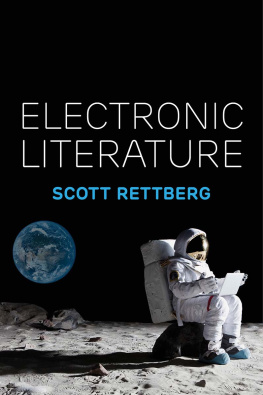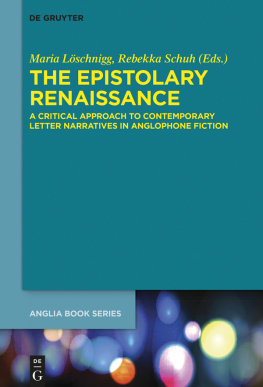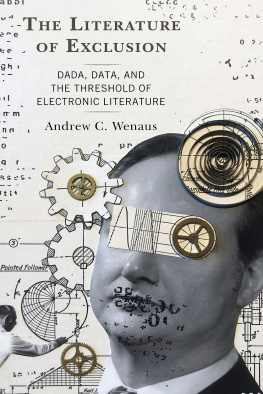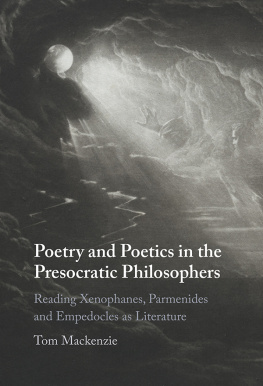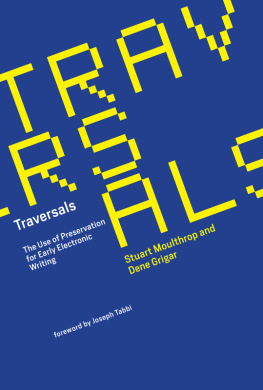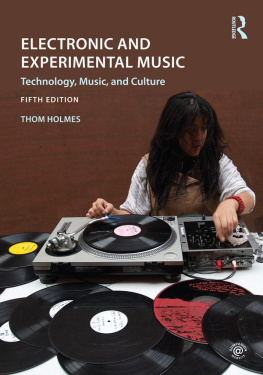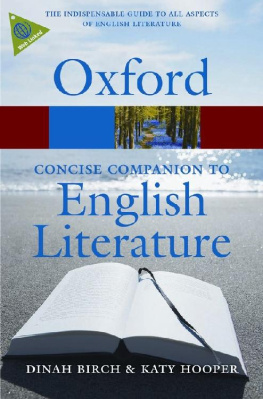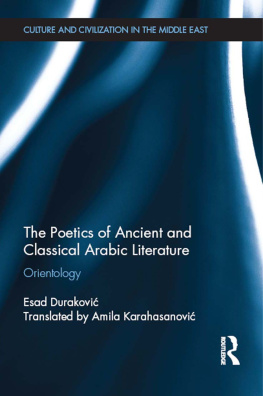Contents
Guide
Pages

For my parents, Paul and Barbara, my children, Jessica, Benjamin, and Aurora, and most of all for my wife, partner, and first reader, Jill.
Electronic Literature
SCOTT RETTBERG
polity
Copyright Scott Rettberg 2019
The right of Scott Rettberg to be identified as Author of this Work has been asserted in accordance with the UK Copyright, Designs and Patents Act 1988.
First published in 2019 by Polity Press
Polity Press
65 Bridge Street
Cambridge CB2 1UR, UK
Polity Press
101 Station Landing
Suite 300
Medford, MA 02155, USA
All rights reserved. Except for the quotation of short passages for the purpose of criticism and review, no part of this publication may be reproduced, stored in a retrieval system or transmitted, in any form or by any means, electronic, mechanical, photocopying, recording or otherwise, without the prior permission of the publisher.
ISBN-13: 978-1-5095-1681-0
A catalogue record for this book is available from the British Library.
Library of Congress Cataloging-in-Publication Data
Names: Rettberg, Scott, author.
Title: Electronic literature / Scott Rettberg.
Description: Cambridge, UK ; Medford, MA, USA : Polity Press, 2018. | Includes bibliographical references and index.
Identifiers: LCCN 2018019604 (print) | LCCN 2018025325 (ebook) | ISBN 9781509516810 (Epub) | ISBN 9781509516773 (hardback) | ISBN 9781509516780 (pbk.)
Subjects: LCSH: Hypertext literature. | Electronic publications. | Interactive multimedia. | Literature and the Internet. | Literature and technology.
Classification: LCC PN56.I64 (ebook) | LCC PN56.I64 R48 2018 (print) | DDC 802.85--dc23
LC record available at https://lccn.loc.gov/2018019604
The publisher has used its best endeavours to ensure that the URLs for external websites referred to in this book are correct and active at the time of going to press. However, the publisher has no responsibility for the websites and can make no guarantee that a site will remain live or that the content is or will remain appropriate.
Every effort has been made to trace all copyright holders, but if any have been inadvertently overlooked the publisher will be pleased to include any necessary credits in any subsequent reprint or edition.
For further information on Polity, visit our website: politybooks.com
Acknowledgments
Segments of , Combinatory Poetics, were adapted from Dada Redux: Elements of Dadaist Practice in Contemporary Electronic Literature by Scott Rettberg in Fibreculture 11 (2008).
Segments of , Hypertext Fiction, were adapted from Destination Unknown: Experiments in the Network Novel by Scott Rettberg, PhD dissertation, University of Cincinnati, 2002; Narrative and Digital Media by Scott Rettberg and Jill Walker Rettberg in Teaching Narrative Theory, David Herman, Brian McHale, James Phelan, eds, Modern Language Association, 2010; The American Hypertext Novel and Whatever Became of It? and Post-Hyperfiction: Practices in Digital Textuality by Scott Rettberg in Interactive Digital Narrative: History, Theory, and Practice, Hartmut Koenitz, Gabriele Ferri, Mads Haahr, Didem Sezen, Tongu brahim Sezen, eds, Routledge, 2015.
Segments of , Kinetic Poetry, were adapted from Bokstaver i begevelser [Letters in Space, At Play] by Scott Rettberg, published in Norwegian in Vagant 2011:1.
Segments of , Network Writing were adapted from All Together Now: Hypertext, Collective Narratives, and Online Collective Knowledge Communities in New Narratives: Stories and Storytelling in the Digital Age, Ruth Page, and Browen Thomas, eds, University of Nebraska Press, 2011.
A short segment of was adapted from the interview Cavewriting by Scott Rettberg, Jill Walker, Noah Wardrip-Fruin, Robert Coover, and Josh Carroll in The Iowa Review Web (July 2006).
I gratefully acknowledge the support of the Meltzer Research Fund, the University of Bergen, Brown University, and the Massachusetts Institute of Technology, and particularly John Cayley and Nick Montfort, my hosts at Brown and MIT during my 2017 sabbatical when the bulk of this book was written.
Thanks to all my friends, collaborators, and colleagues in the Electronic Literature Organization and in the field of electronic literature, who are too many to name individually. It is fair to say that during the past two decades, my professional and social lives have become indistinguishable. I could never have hoped to find more creative, supportive, dedicated, intelligent, funny, and talented people in my life. The best way I can thank them is to note that most of their names can found in the pages of this book. Finally, thanks to my students and colleagues in the University of Bergen Digital Culture program and the Bergen Electronic Literature Research Group.
Genres of Electronic Literature
Imagine a book. That should be easy enough, youre holding one now. The book is a particular reading technology, and its a good one. It took a long time to develop. The codex book is portable and can be easily lugged from place to place. It is addressable. It has page numbers so I can easily communicate with you exactly where any piece of information is within its volume: we can get on the same page and read the same words. The book has a complex and multifunctional navigational apparatus. There is a table of contents, there is an index, and so the book can be navigated nonlinearly. The book is verifiable. It has a copyright page with a publisher and a place and a year and an author. The book is fixed. If I put it on the shelf now and come back and pull it out ten years later, the same words will be on the same pages as when I last opened the book. While the book could be destroyed in a fire or flood or might slowly decay, there is a sense of permanence to it. One of its main functionalities is to get thoughts down in print and carry them through time.
Imagine that the book were different. Imagine it offered other affordances (see Norman, 1999) and material properties. Imagine that instead of turning pages you could make any word in the book a link to some other part of the book, or even some other book. Imagine it were bound on a spool, so that you could enter and exit anywhere; a book without beginning or end. Imagine what you would do with that as a storyteller. Imagine what it would mean if every time you put the book up on the shelf, the words in the book shifted order and rearranged themselves. Would it still be the same book? What would you do with that as a poet? Imagine if, when you pulled the book down from the shelf and opened up the first page, the book asked you in what direction you wanted to go, and would not begin to tell a story until you responded. Imagine if the book were a conversation, a novel that you had to talk to. Imagine that, as you read a poem on the page of the book, the words jumped off the page into three-dimensional space and began flying around the room, shifting form and regrouping in the physical environment. Imagine that when you opened the book, it was filled with threads connecting it to all of the other books in your library, which would make it possible to pull part of another book right into the text of the one you were reading. Imagine if the book could read the newspaper and change its content depending on the time of the day, or the weather, or the season. Imagine if you opened the book and found all those of your friends who were reading the book at the same time leaving their comments in the margins. Imagine that when you opened the book, those same friends were all writing the book simultaneously. Imagine the book as a network, always on, always connected, and always changing. Imagine what you could do as a reader. Imagine what you could do as a writer. Imagine the book as a networked computer.

